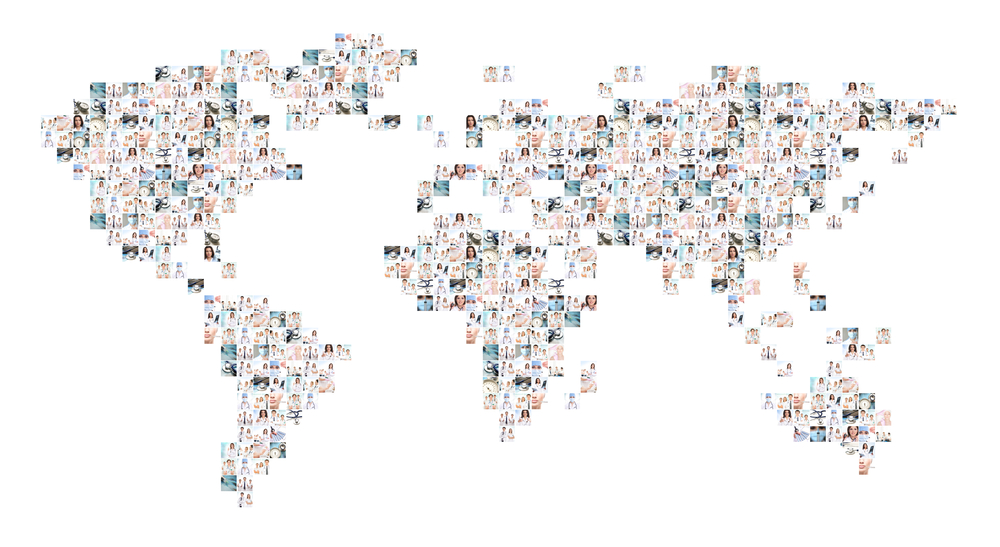Editorial: Welcome to IGMHE
Keywords:
IGHME, IGHPE, global health, medical educationAbstract
Welcome to the inaugural issue of Innovations in Global Medical and Health Education. This first issue, with Robert Crone, M.D. as Guest Editor, consists of articles based on presentations at a symposium, “Globalization of Medical Education”, organized at the November 12, 2012 annual meeting of the American Association of Medical Colleges (AAMC) in San Francisco. We are indebted to the AAMC and its Global Health Learning Opportunities (GHLO™) program for its vision in hosting this event.
With the arrival of the era of global medical and health education, we anticipate competing arguments from two major schools of thought: those who are in favor of exactly replicating admission policies, curricular standards, and promotion and graduation processes from well-established, parent institutions in the West; and those who argue for maintaining the central objective of producing the highest quality graduates while flexibly using innovations that cater to local needs. We find ourselves leaning toward those espousing the latter point of view. Further, we hope that innovations introduced globally and tested successfully, will increasingly become a part of the mainstream medical and health education in the West. While not bold enough to predict this as yet, we venture to guess that such reciprocal exchange would lead to reduced costs of medical education and even improvement in certain areas at well-established schools.
Our philosophy is firmly rooted in our own personal experience in establishing (VD) or running (JIS) medical schools overseas that are producing world-class graduates while introducing innovations that have contributed greatly to their success. However, we are mindful that this process has just begun. Internationally accredited, culturally adapted, postgraduate medical training programs have recently been initiated in Singapore and Qatar. In time, these will lead to certification by internationally recognized bodies, to be followed by appropriate infrastructure preparing practicing physicians for maintenance of certification (MOC). Similar processes would apply broadly to health education outside the narrow domain of medical education. Finally, achieving these objectives will require paradigm shifts, innovations, the use of online and interactive pedagogical methods, globally accepted assessment methodologies and standards, and a much greater emphasis on inter-professional learning and collaborations.
In the first article, Drs. Crone and Samaan set the stage by identifying major trends in global medical education and pointing out the workforce challenges for the US healthcare system that such trends portend. They stress the need for standardized assessment and benchmarking of physician competence regardless of where the student is trained and practices.
In the second article, Drs. Sheikh, Badr, Kamei, and Arayssi present a case study of three successful adaptations of the standard American model in diverse cultures. Their article makes a strong claim that the graduates of these programs are not only of high quality, but they also will be trail blazers for “One World, One Medicine” in which every person would have access to high quality care and the providers could cross borders freely to practice a consistently high standard of medicine irrespective of location.
The third article by Dr. Cassimatis describes how the globalization of medical education is changing the mission of the Educational Commission for Foreign Medical Graduates (ECFMG) that was originally established to assess and certify the quality of international medical graduates (IMGs) for US-based residency education. Now ECFMG is broadening its scope to include support for those individuals searching for training opportunities in other countries and to develop a new system of accreditation for medical schools that reflects changing needs in the field.
Dr. Melnick, President and CEO of the National Board of Medical Examiners (NBME), describes the innovations needed to adjust the assessment systems to align their robustness with local needs. These changes would entail developing a more comprehensive assessment of mastery of competencies, using naturalistic data longitudinally to simulate real world patterns of skills and competencies.
The article by Dr. Nasca addresses how Accreditation Council for Graduate Medical Education (ACGME), which currently accredits about 9200 residency education programs in the US, is responding to globalization of medical education by creating ACGME-International (ACGME-I).
Finally, Ms. Albee and Dr. Nora provide the context on the founding of the American Board of Medical Specialties (ABMS) and delineate its mission. They then provide a strong rationale for expanding their efforts internationally and elaborate on ABMS-International's (ABMS-I's) recent efforts in Singapore and how such efforts will contribute to advancement of global standards for medical care.
We believe that we are in the beginning phases of a movement that will gain momentum with each passing year. By providing a platform for a healthy debate about the achievements, challenges, and innovations in global medical and health education, this journal intends to be in the vanguard of this paradigmatic shift.
Downloads

Downloads
Published
How to Cite
Issue
Section
License
Submission of a manuscript, audio or video file to IGHPE will be taken to mean that it represents original work not previously published and that it is not considered elsewhere for publication. Copyright of any work published in IGHPE is retained by the author(s).
Contributions to IGHPE are published under a Creative Commons-Attribution 4.0 (CC-BY) license which allows re-use of the work, provided due credit is given to its authors. For details, see http://creativecommons.org/licenses/by/4.0.




